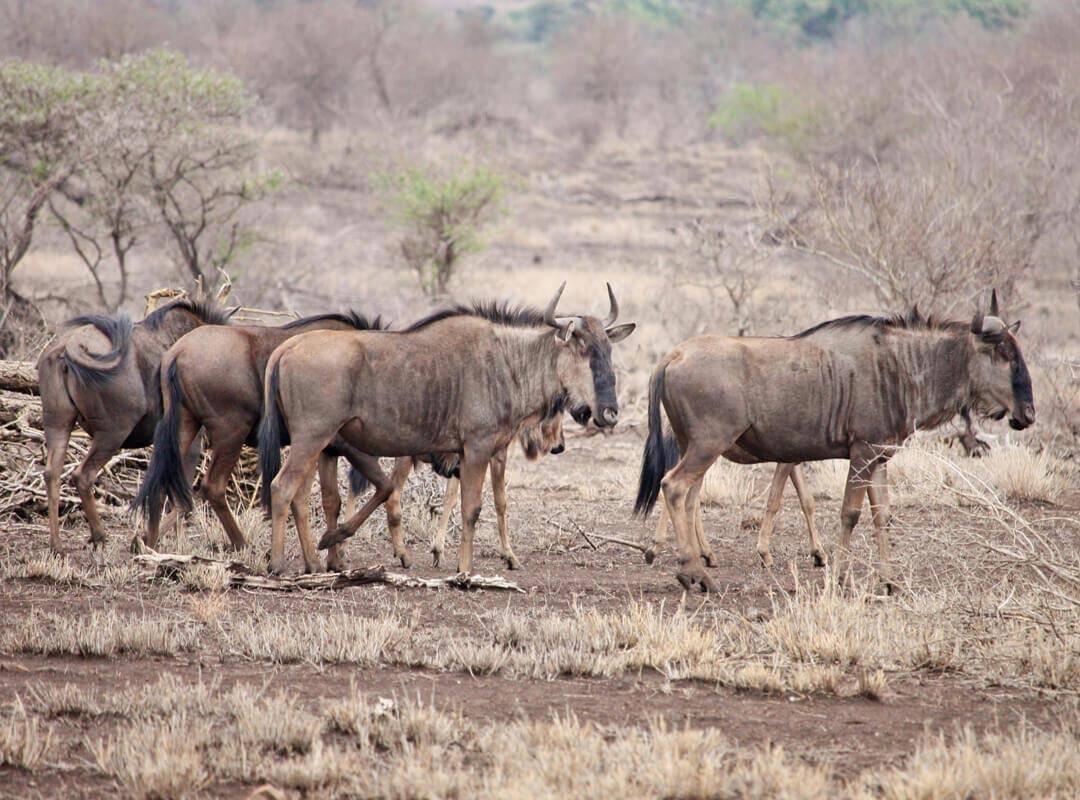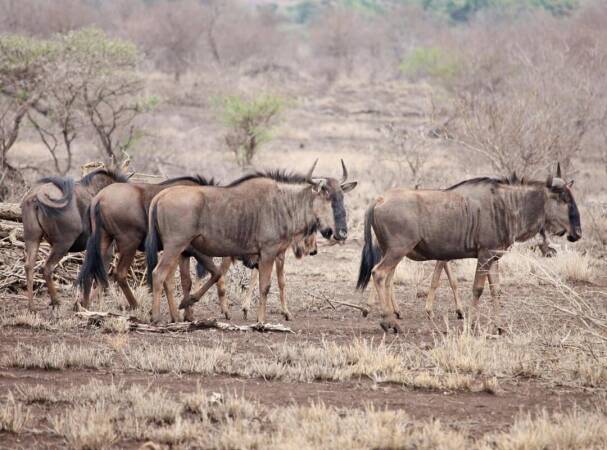

Cookson’s wildebeest (Connochaetes taurinus cooksoni), also known as the Luangwa wildebeest, is a variant of the blue wildebeest that is native to the Luangwa Valley in Zambia. It is listed as an animal of “least concern” by the International Union of Conservation of Nature (IUCN), allowing trophy game hunting enthusiasts to target this unusual Africa plains game species when hunting in Zambia.
Cookson’s wildebeest is a herbivorous Africa plains game grazer and prefers sweet grasses, although they will feed on foliage from trees and shrubs should grass become scarce. They are most active early in the day and again later in the afternoon when it is cooler, and rest during the day. Their habitat consists of savanna, grasslands and plains.
Although endemic to Zambia, they do migrate at times in Malawi, which seems to depend on the rainfall pattern and grass available for consumption.
These Africa plains game antelopes breed towards the end of the rainy season, with the female gestating for 8.5 months, giving birth to one calf. The calf is usually born in the middle of the day and on its feet very quickly.
Predators of this species includes lions, hyenas, wild dogs, and cheetahs.
Name:
Connochaetes taurinus cooksoni
Male Weight:
About 550 plus pounds
Gestation Period:
8.5 months
Range:
Zambia
Life span:
20 years
Hunting in Namibia for the Cookson’s Wildebeest
When hunting in Zambia and targeting Cookson’s wildebeest, be on the lookout for a larger-bodied African plains game antelope than the other variants of the blue wildebeest. It is also a lighter color than the main species, with more distinct markings on its face and neck. It has a light brown to light black body, with gray horns and a dark tail. Its lower head is also dark, with a small, dark, and shaggy mane. Both sexes have horns.
These wildebeest can only be targeted on a game hunting safari in Zambia, in the Luangwa Valley. The Cookson’s wildebeest, like most of the wildebeest species, is most active during the early mornings and late afternoons, making this the best time to target them on a hunting safari while they are up and grazing or searching for water. A popular method is to build a blind overlooking the waterhole where they come to drink and target them from this position. Alternatively, the walk-and-stalk method remains a favorite option. A wounded wildebeest is known to be aggressive, be ready to take that second or third shot should it be needed, and the animal doesn’t fall and stay down immediately.
As you embark on a game hunting safari for the Cookson’s wildebeest, you are in for a hunting adventure of note! This hunt will test your stalking skills as you try to hunt an extremely alert species where you have not one set of eyes and ears, but rather those of the entire herd on the lookout for danger! And that’s before you’ve decided on which trophy bull to target!
When hunting in Zambia and targeting Cookson’s wildebeest, your hunting safari should not be conducted with any caliber less than .270. Flat shooting .300 magnums loaded with 200 grains to 220 grains are the best option for this tough animal. While a .308 with a bullet weighing not less than 165 grains can be used, shot placement is critical. The hunter need not be afraid to use bigger options, such as a .338, .375, or a .416 Rigby.
Search from our range of Hunts across various popular destinations in Africa.
Find A Hunt